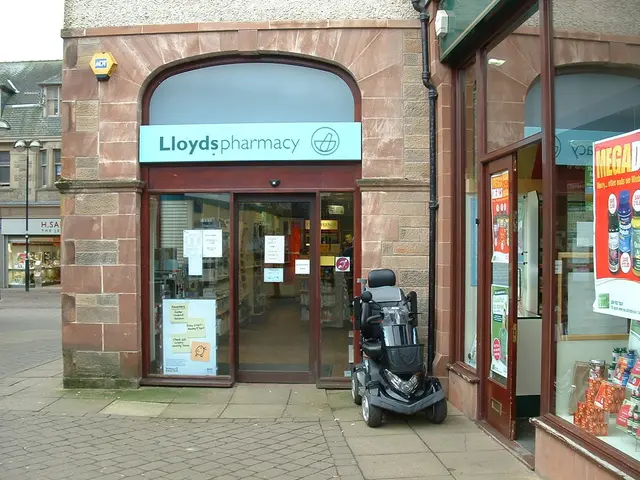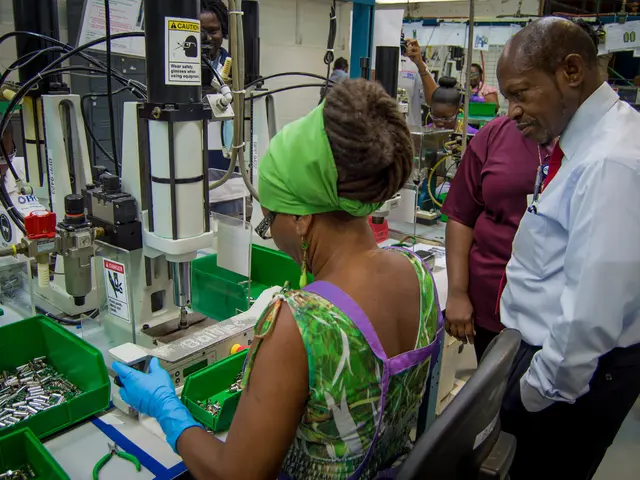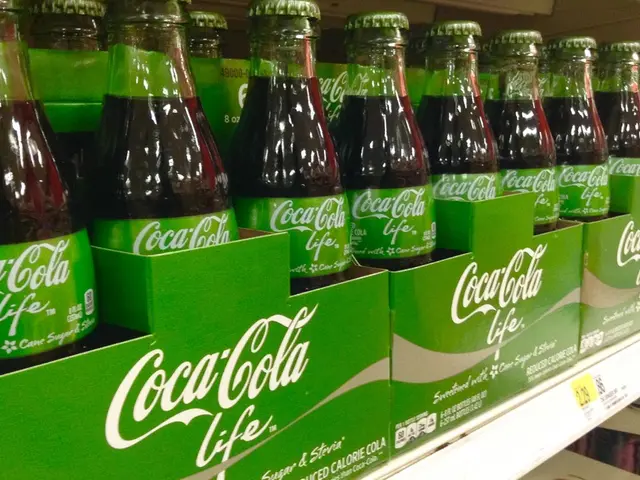GSK SHARES SURGE AFTER BETTER-THAN-EXPECTED Q1 RESULTS AND TARIFF-READINESS PLAN
Pharmaceutical Company GSK Reports Robust Performance, Affirms Confidence in Maintaining Position Amid Potential Pharmaceutical Taxes
The shares of British pharmaceutical giant, GSK, are seeing a surge in trading today after it reported better-than-expected first-quarter results and announced its readiness to tackle potential tariffs that might be imposed by the Trump administration.
GSK's core earnings per share for the quarter stood at 39.7 pence ($0.53), well exceeding the consensus expectation of 31.5 pence. The company's revenue also grew by 4% year-over-year, reaching 7.52 billion pounds ($10.04 billion).
In response to the tariff threats, GSK has affirmed its full-year guidance, including a turnover growth of 3% to 5% and a core earnings per share growth of 6% to 8% at constant exchange rates. The company seems optimistic about its ability to withstand tariffs, stating that it has identified mitigation options in its supply chain and productivity initiatives.
Previous tariffs imposed by Trump had exempted pharmaceutical imports. However, the President has threatened to levy tariffs on the industry to force companies to shift manufacturing to the U.S. GSK, which has seen a 15% growth this year, is up a further 3% in premarket trading due to this news.
THE IMPACT OF TARIFFS ON PHARMACEUTICAL INDUSTRY
The pharmaceutical industry faces potential financial pressures from sector-specific tariffs. Tariffs on raw materials and manufacturing equipment will directly increase production costs. For instance, a 25% tariff on pharmaceuticals could increase per-pill costs by over 20%, translating to approximately $42 annually per consumer.
Tariffs could also lead to pricing pressures, research and development (R&D) slowdown, and supply chain complications. Generic drug manufacturers, with thinner margins, are particularly vulnerable to these pressures. However, GSK's diversified portfolio could potentially cushion it from these impacts compared to smaller firms.
MITIGATION STRATEGIES
Common industry strategies to tackle these challenges include supply chain diversification, cost-sharing measures, tariff classification audits, and lobbying for exemptions. GSK might leverage its global scale to negotiate supplier discounts or absorb costs more effectively than smaller competitors, though persistent tariffs could strain long-term profitability. Proactive scenario modeling and partnerships with trade compliance experts would likely be part of their mitigation toolkit.
- In light of the potential tariffs, GSK has expressed optimism about its ability to withstand the financial strain, citing identified mitigation options in its supply chain and productivity initiatives.
- GSK's shares have soared in intraday trading, indication that the market is favorably reacting to its readiness to tackle tariffs and the better-than-expected first-quarter results.
- The pharmaceutical industry, including GSK, may face significant financial pressures from sector-specific tariffs, with potential increases in production costs and possible pricing pressures.
- GSK, with its diversified portfolio, could potentially be better equipped to withstand the impacts of tariffs compared to smaller firms in the pharmaceutical industry.
- Common strategies to combat these challenges include supply chain diversification, cost-sharing measures, tariff classification audits, and lobbying for exemptions, tactics that GSK might employ.
- Proactive scenario modeling and partnerships with trade compliance experts are likely to be incorporated in GSK's mitigation toolkit as it navigates the potential tariff landscape.
- Regarding tariffs on raw materials and manufacturing equipment, a 25% tariff on pharmaceuticals could potentially raise per-pill costs by over 20%, translating to approximately $42 annually per consumer.








